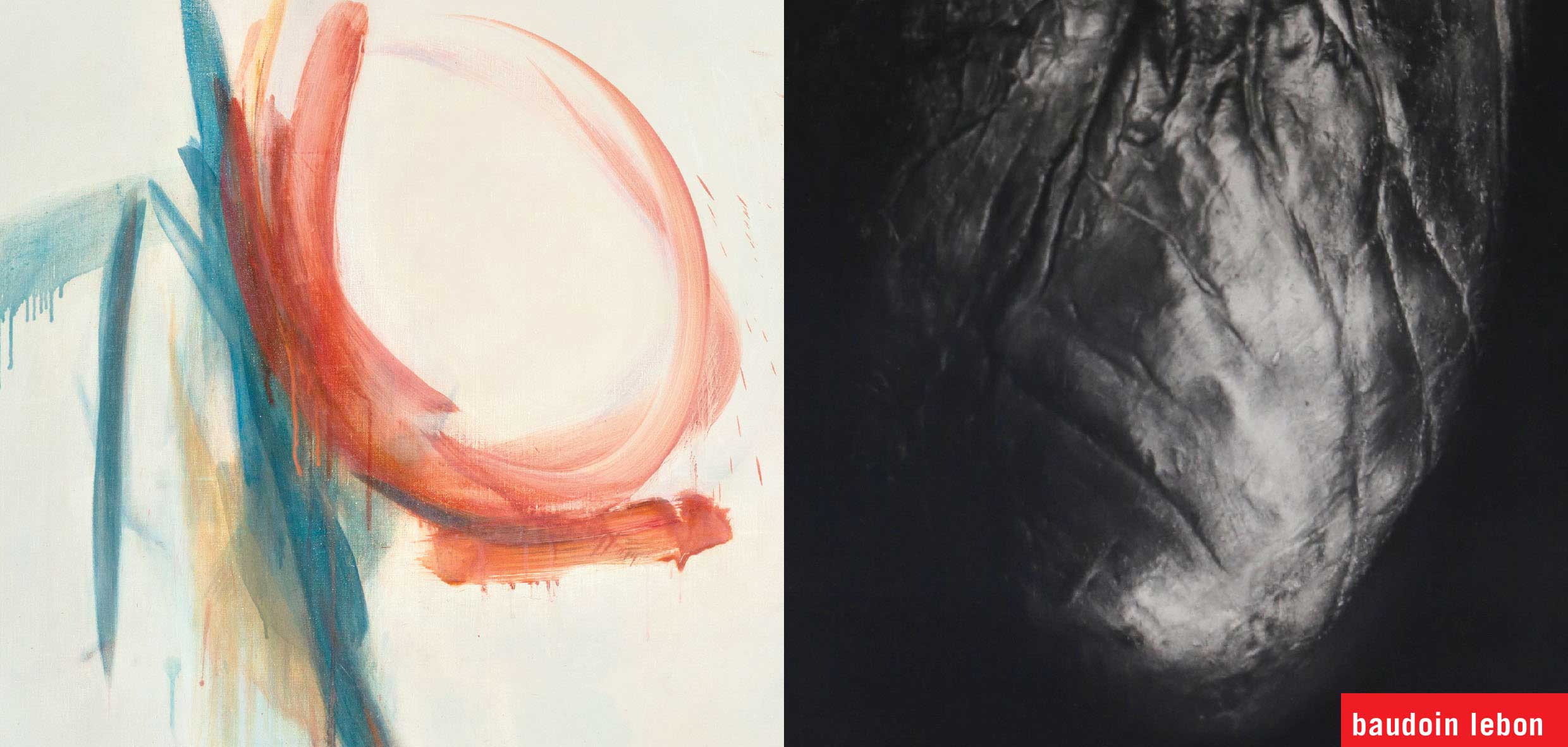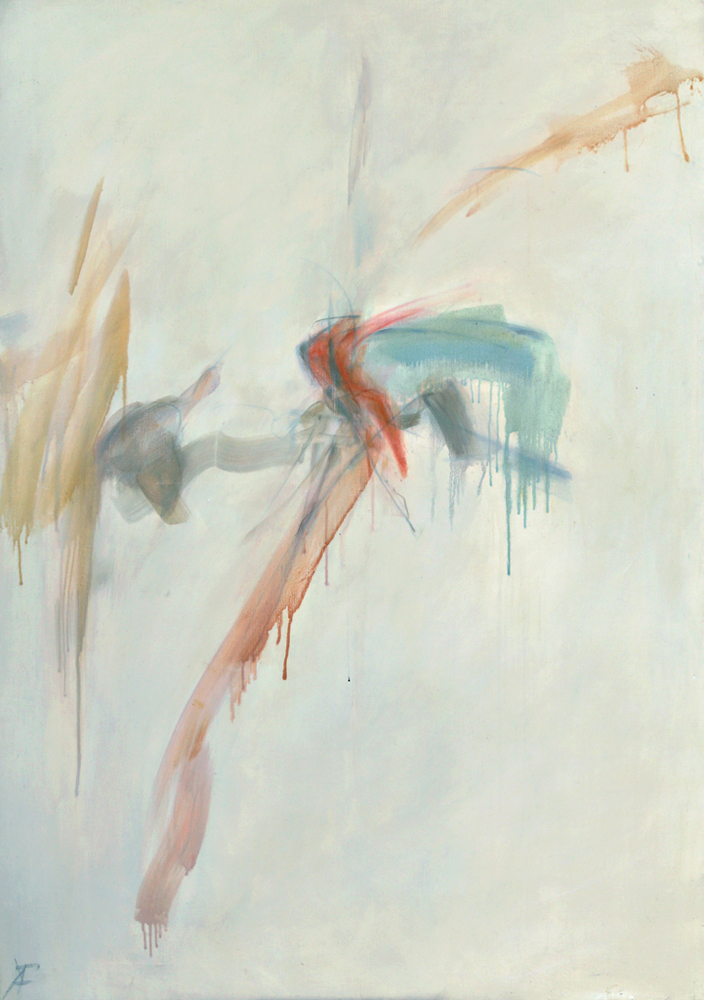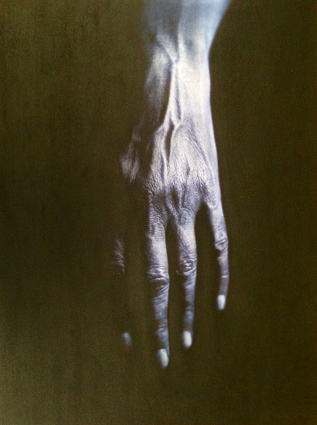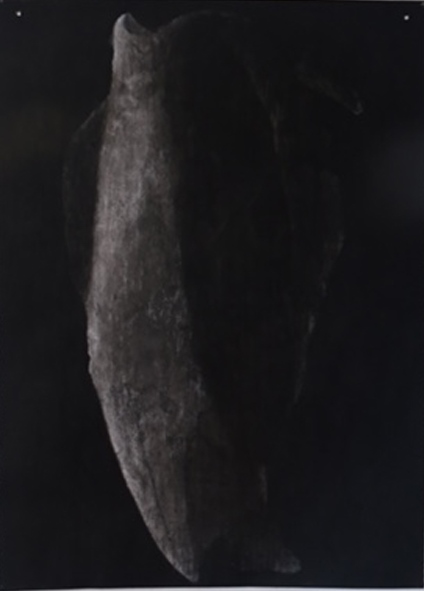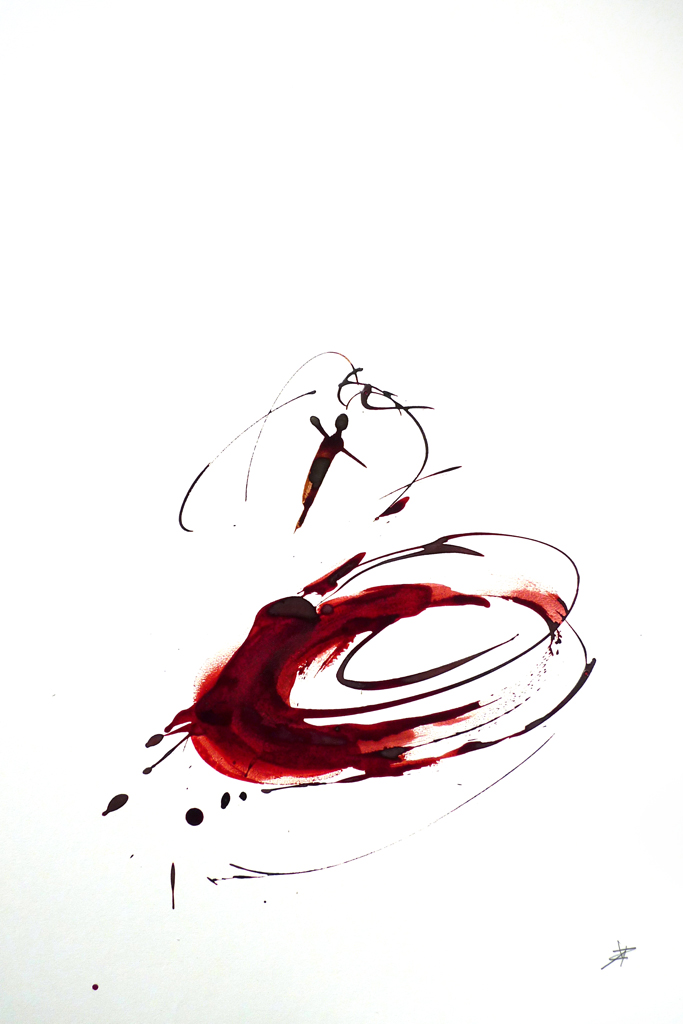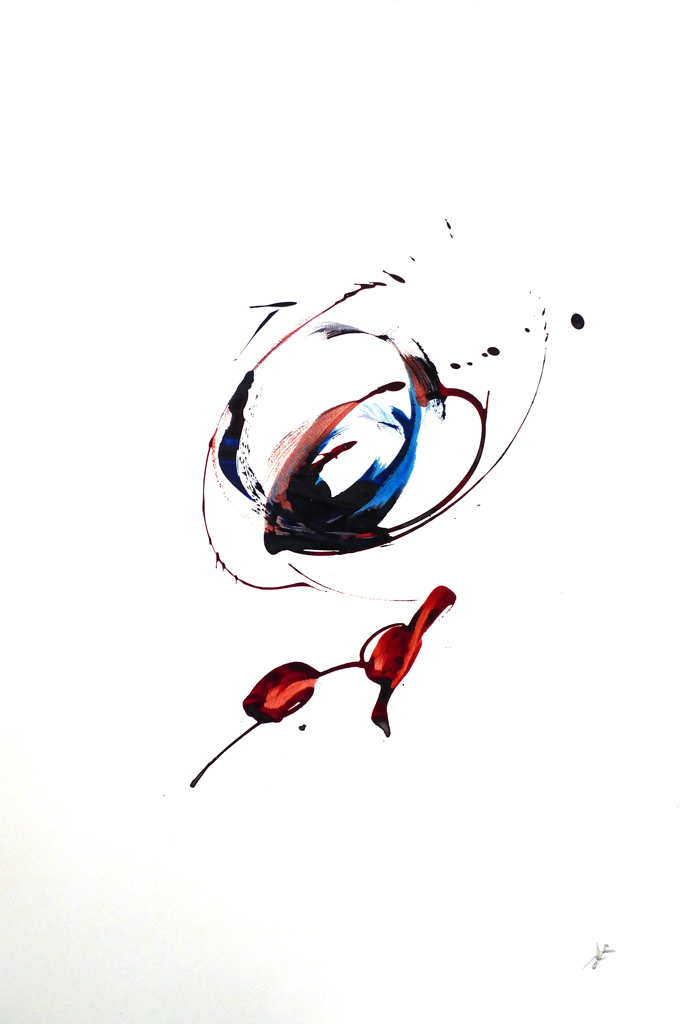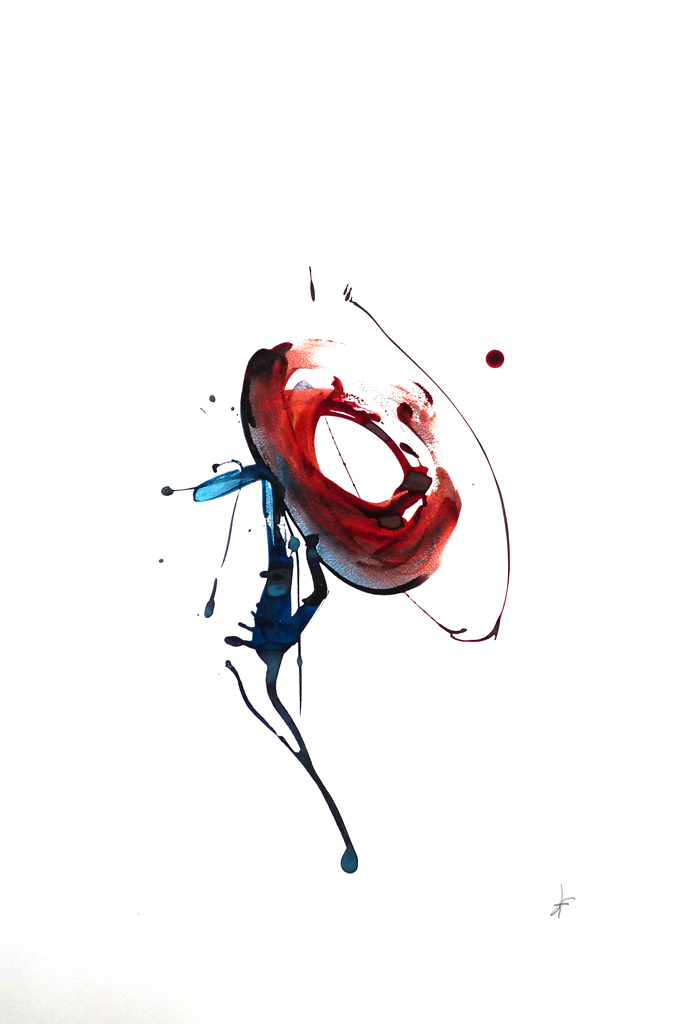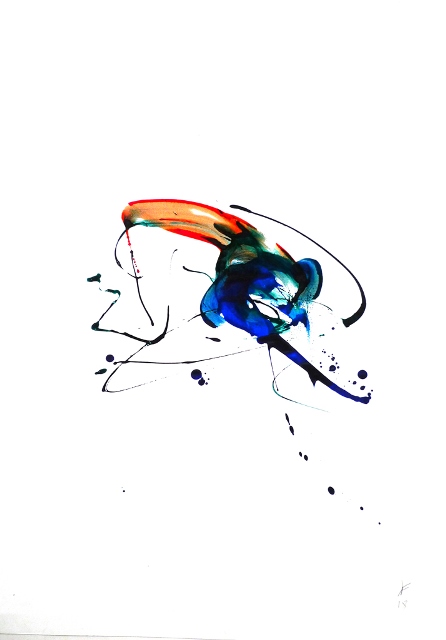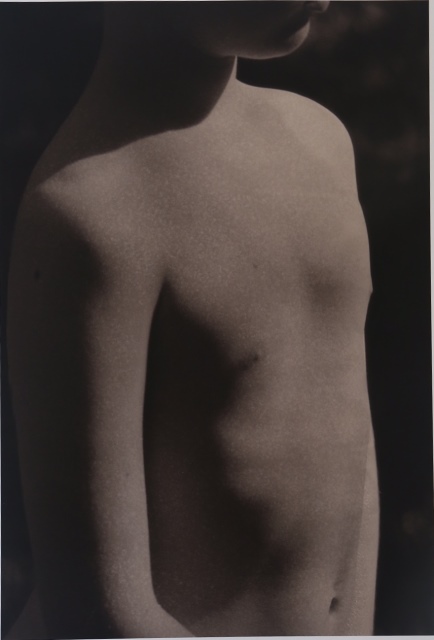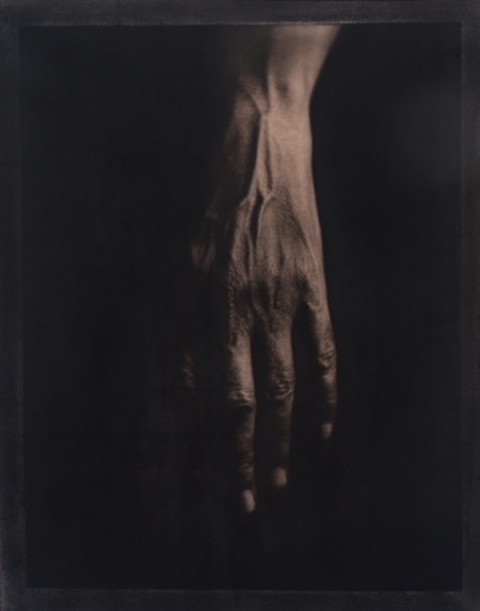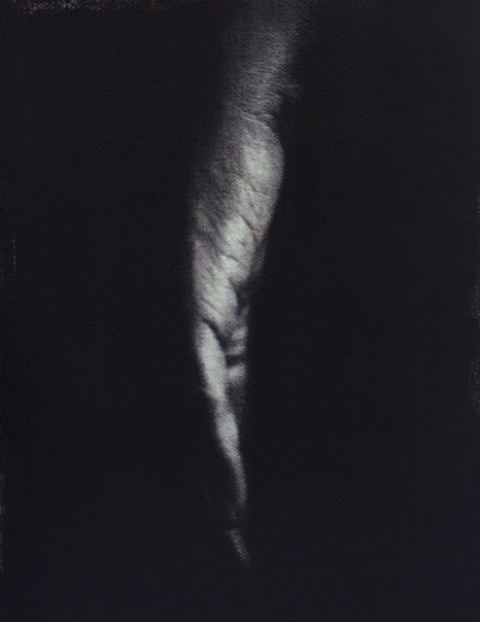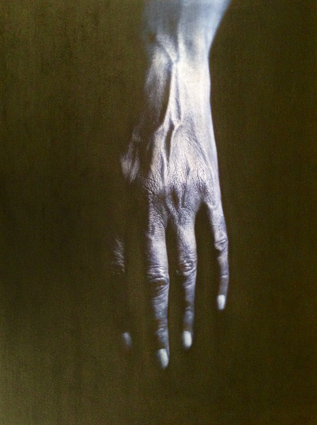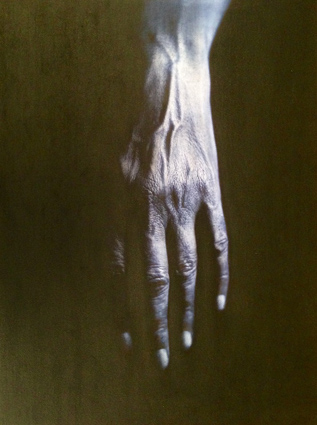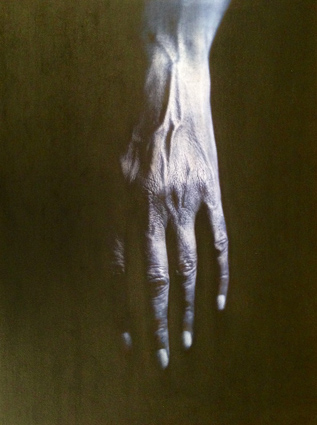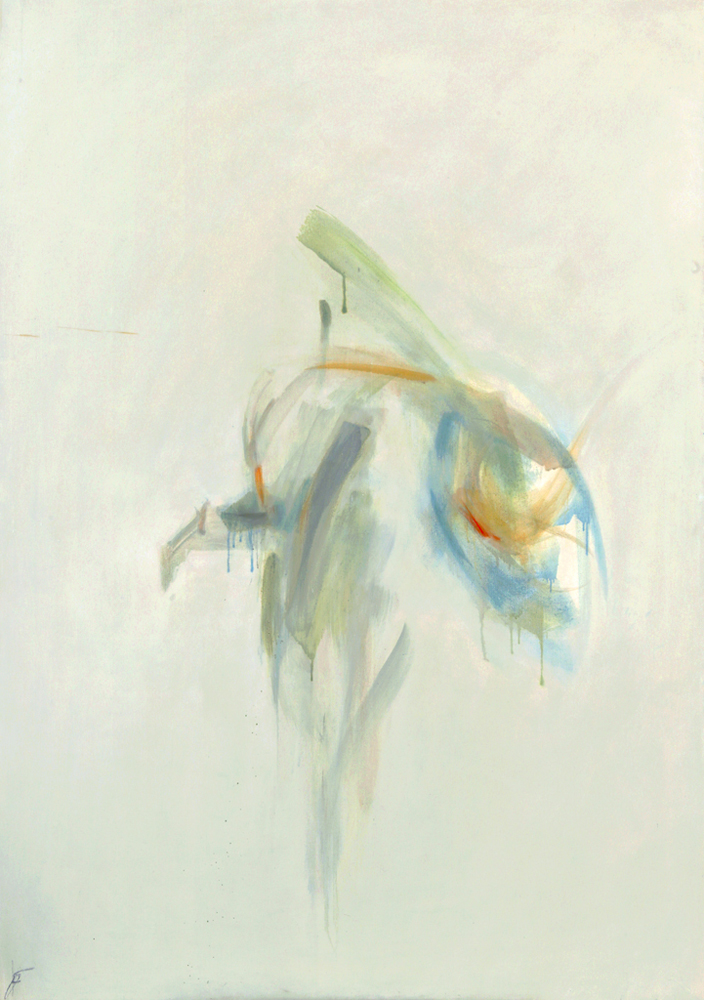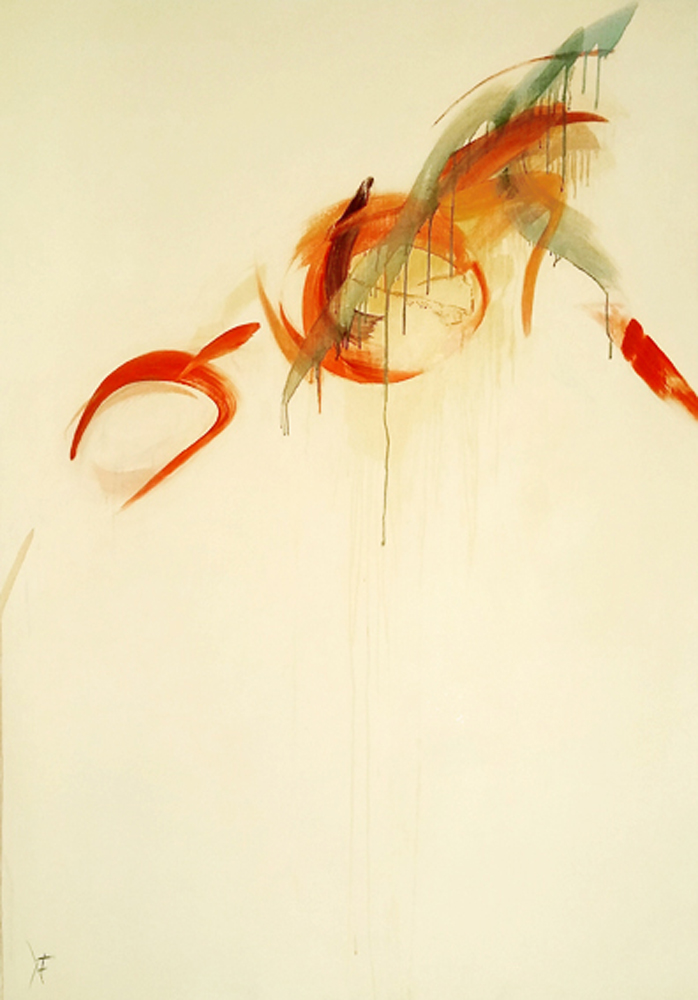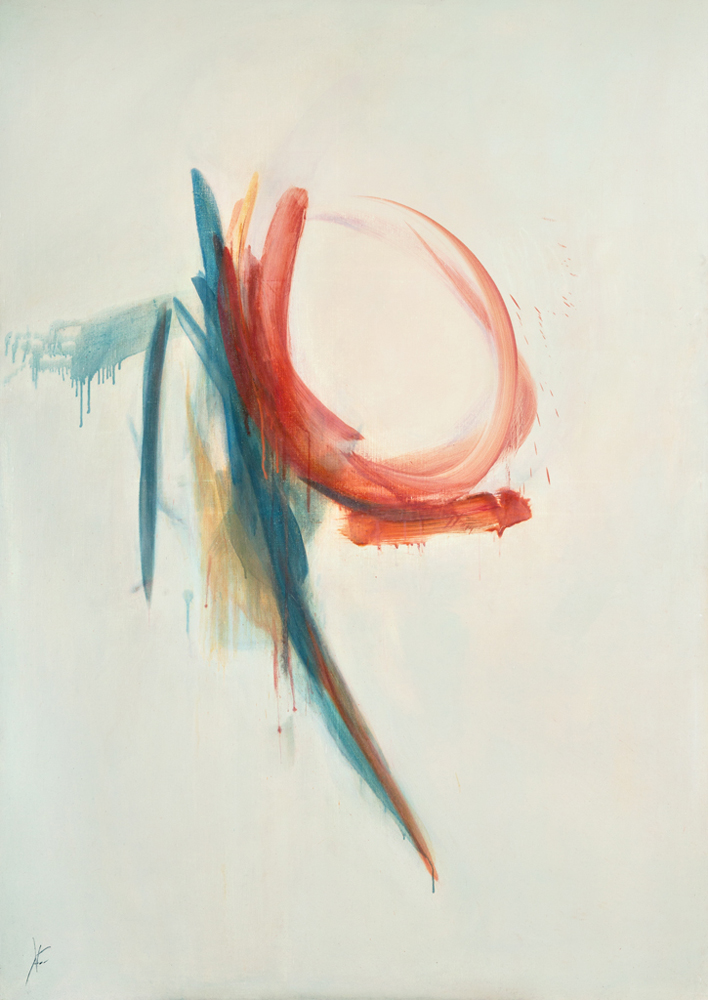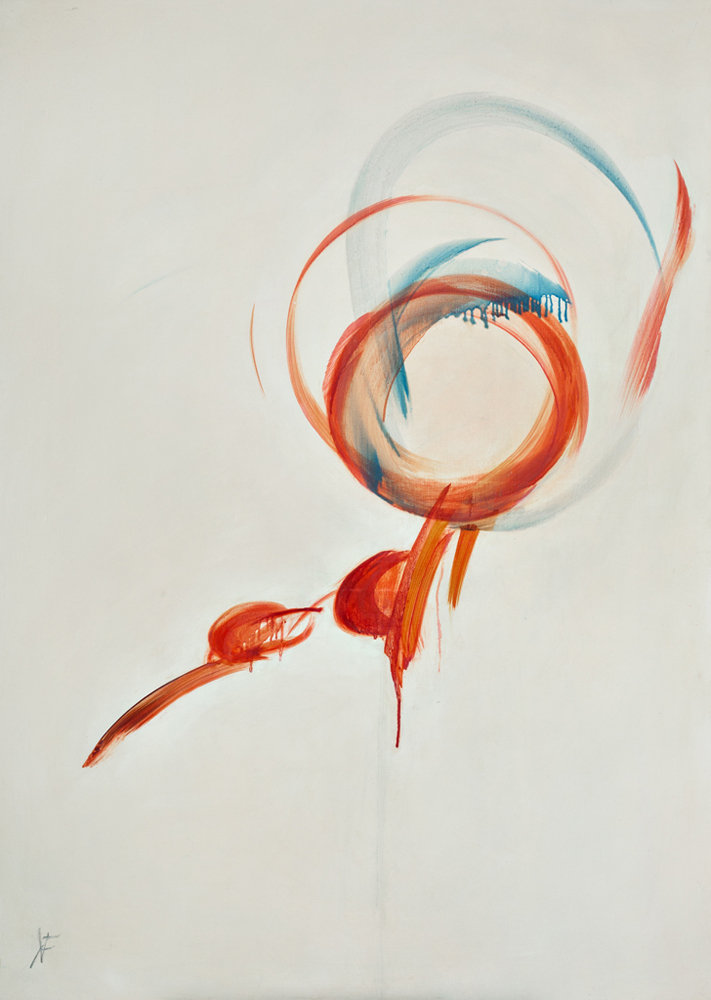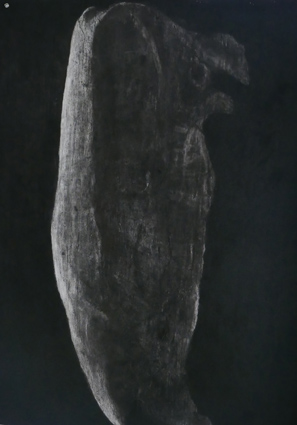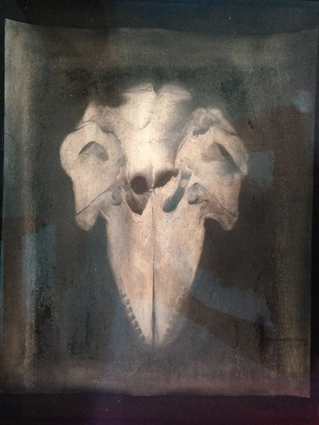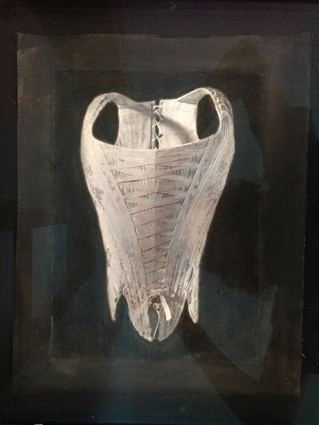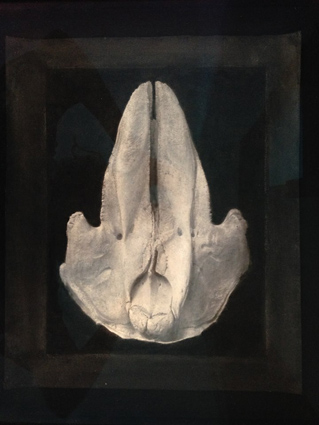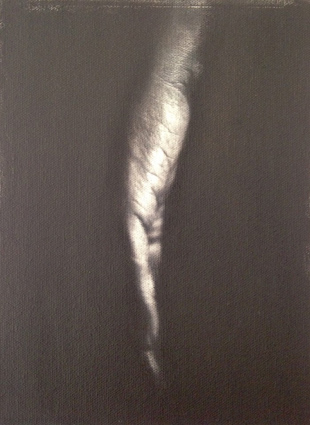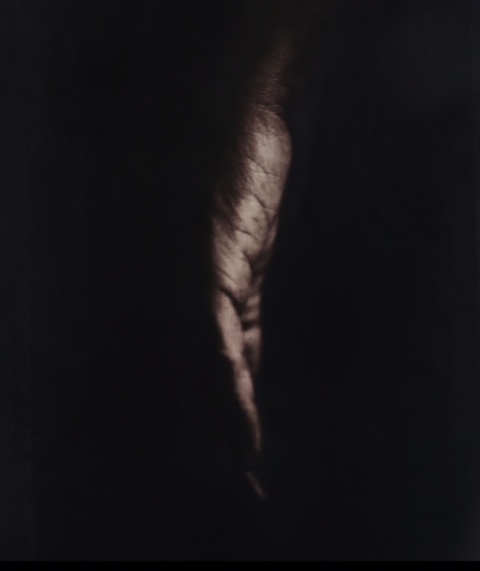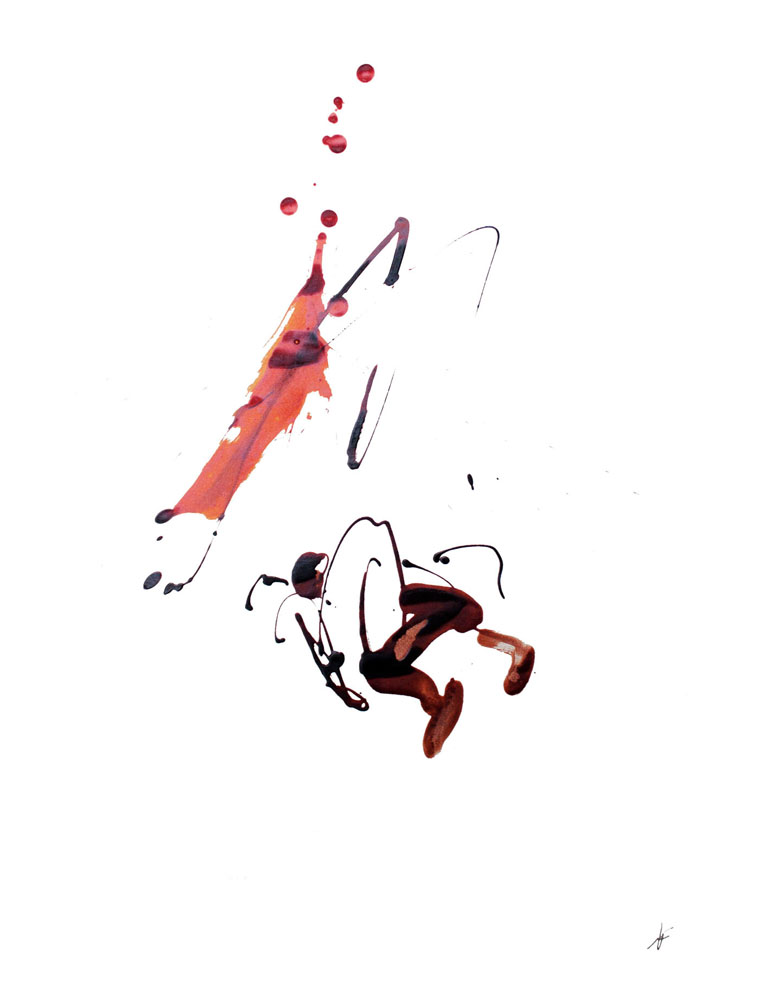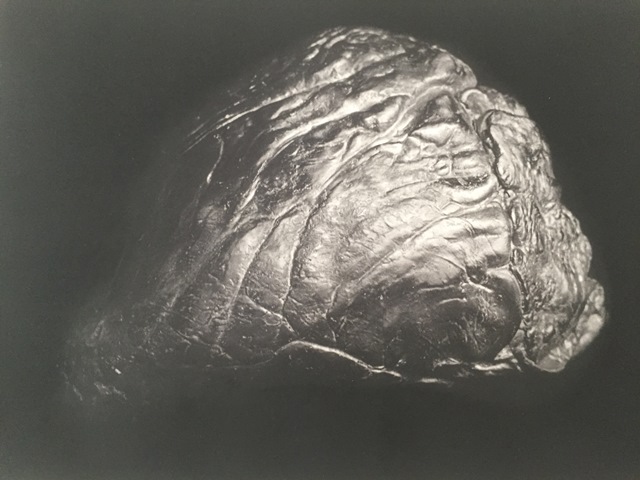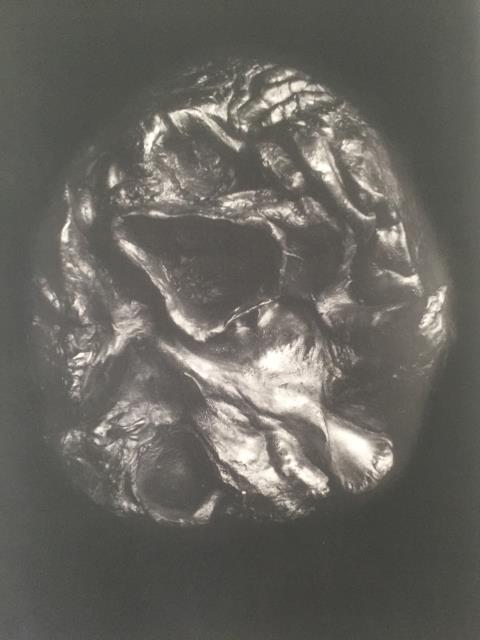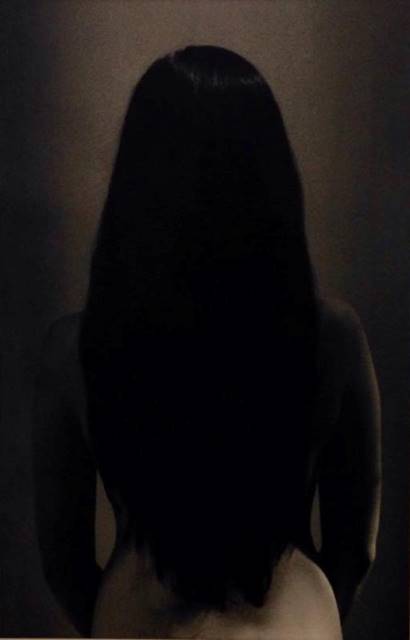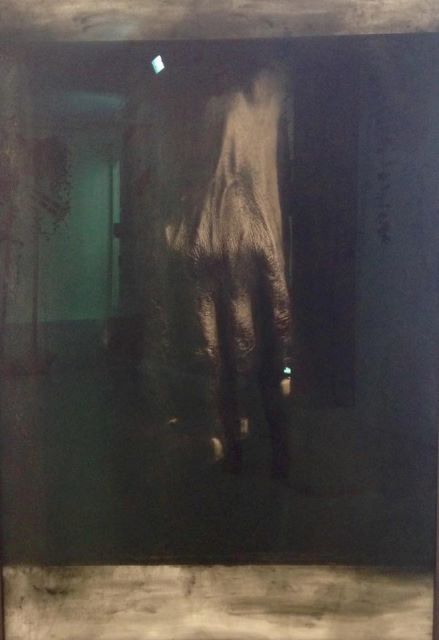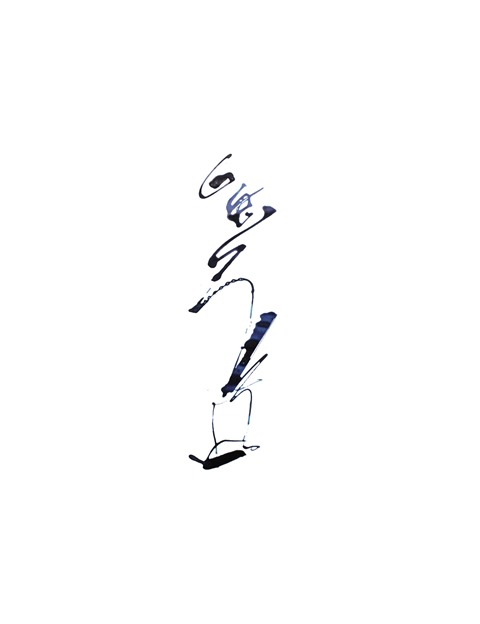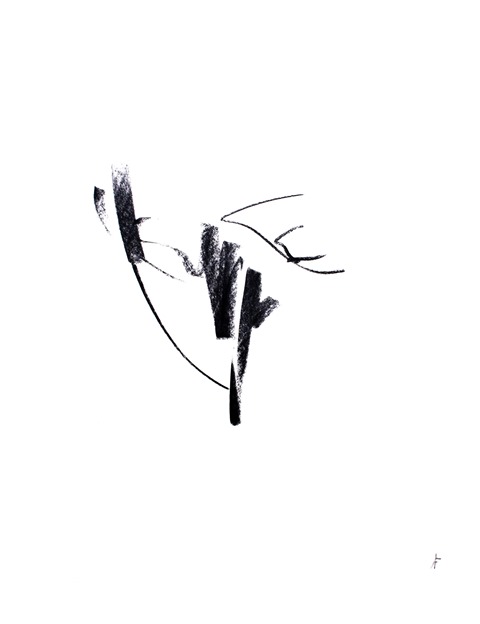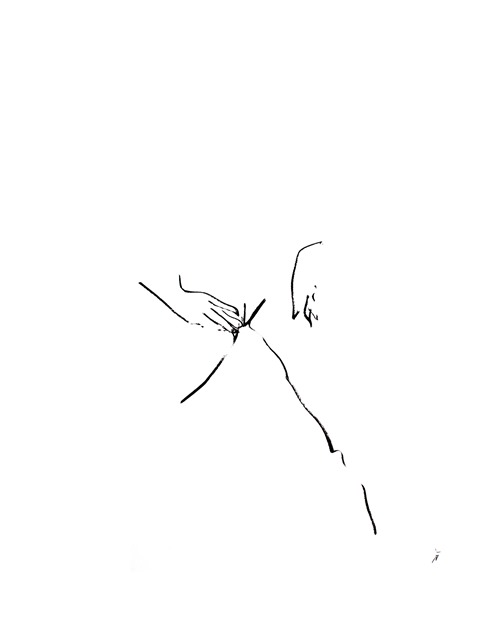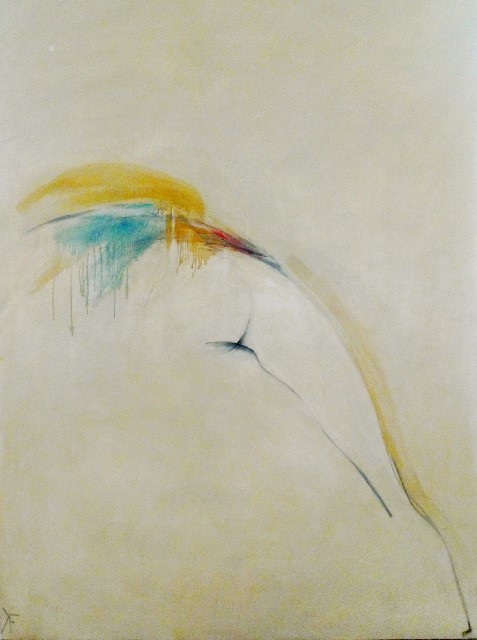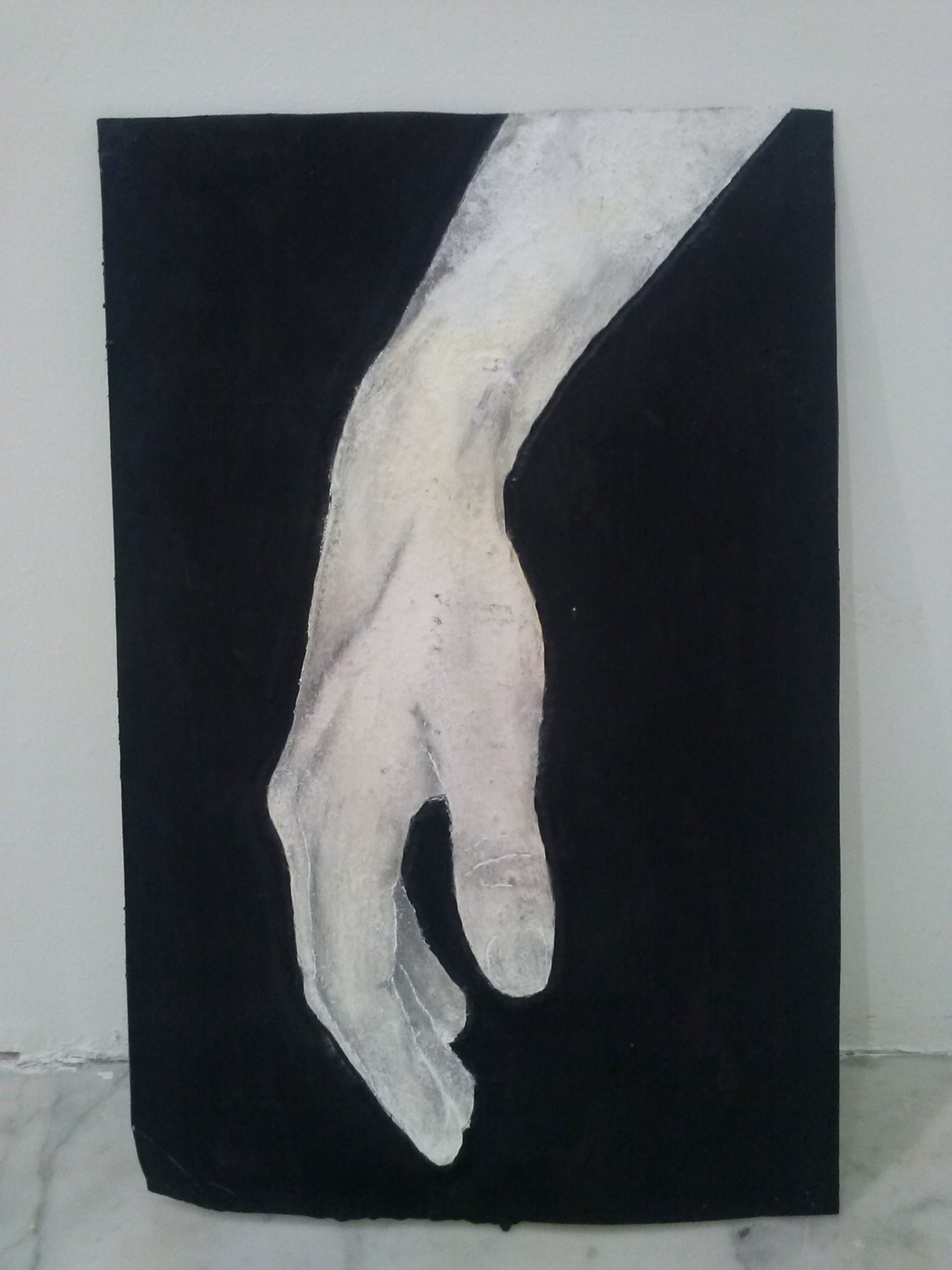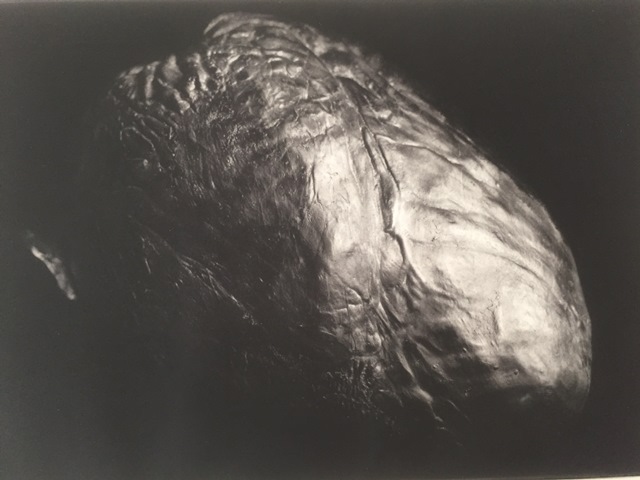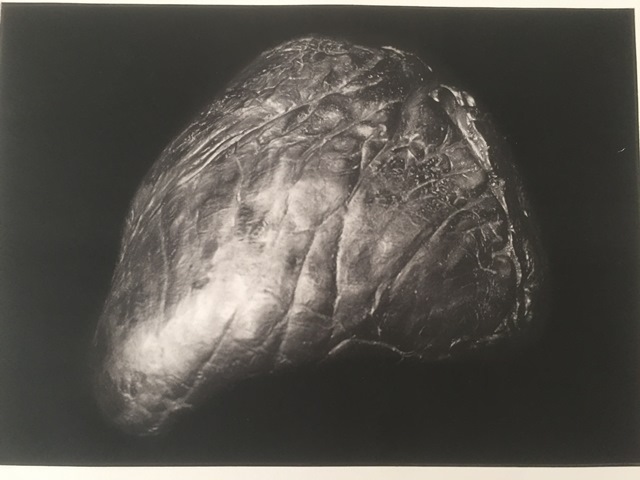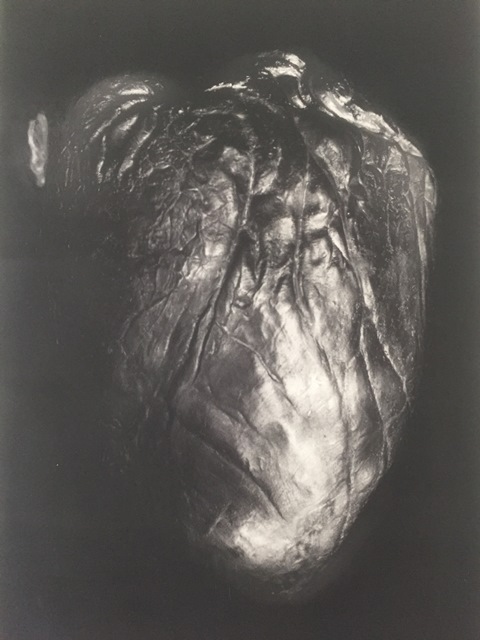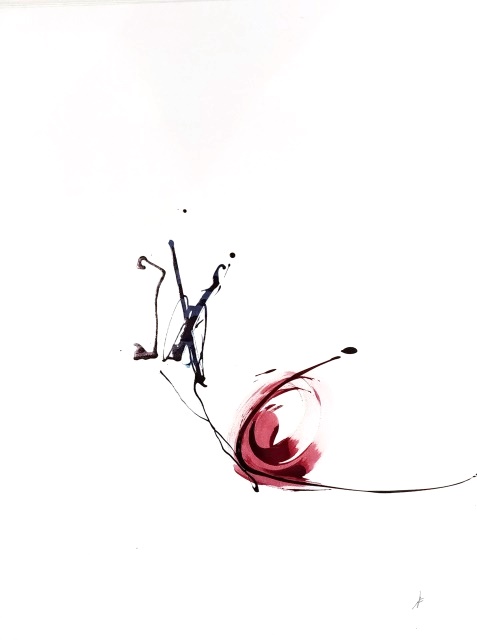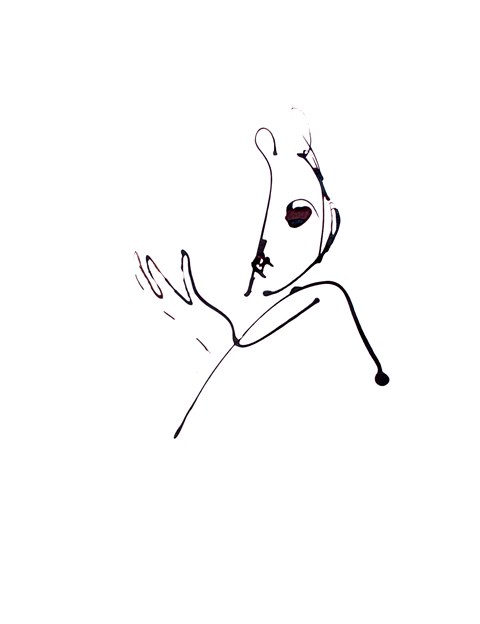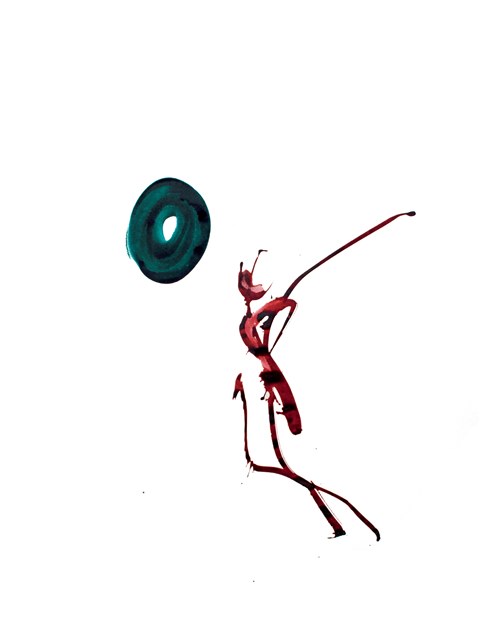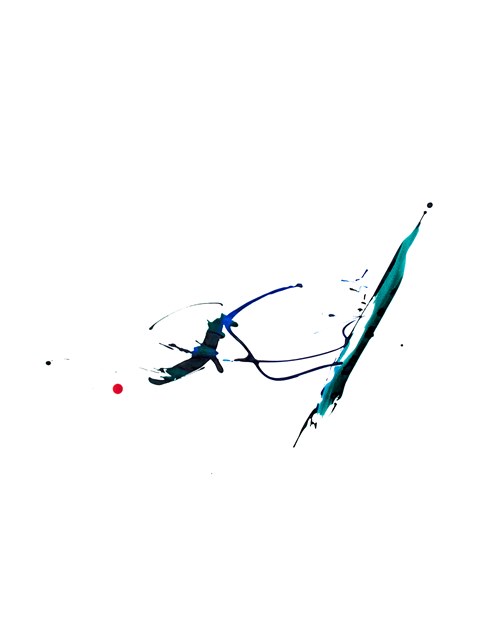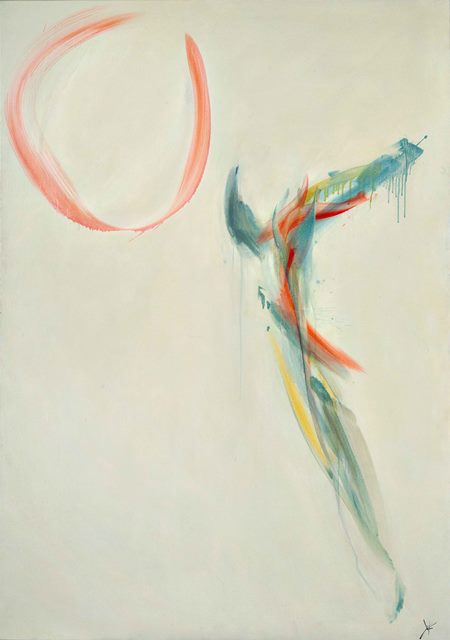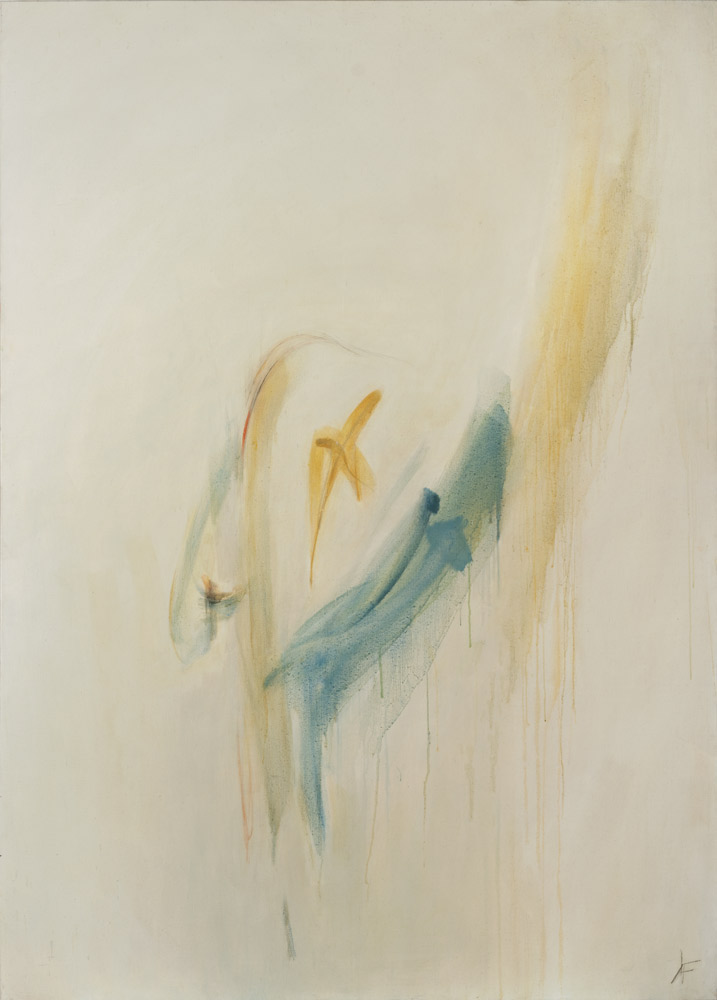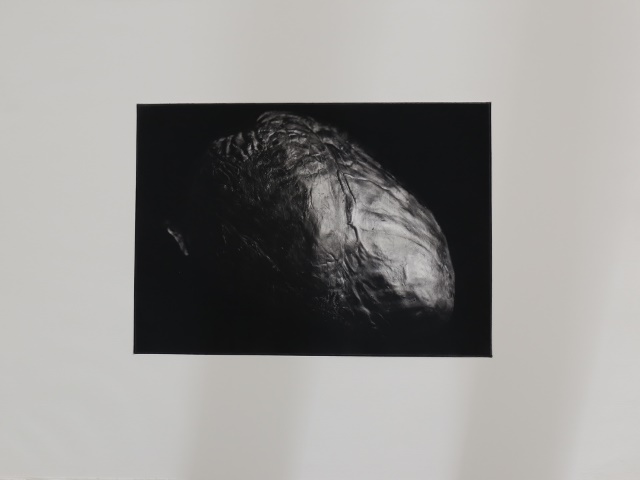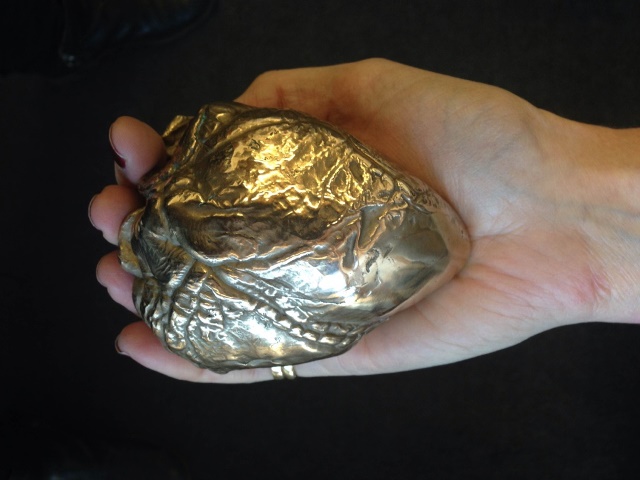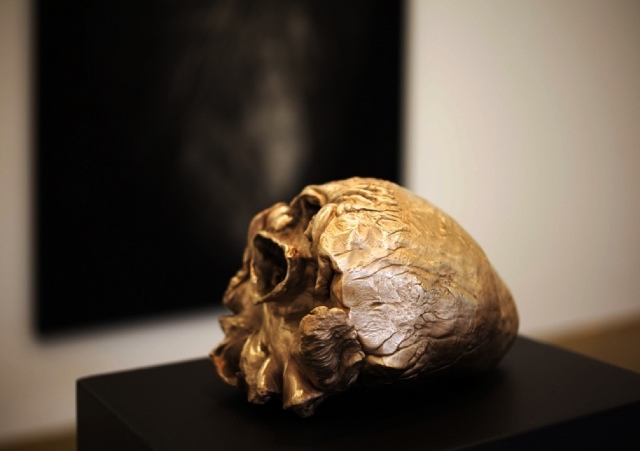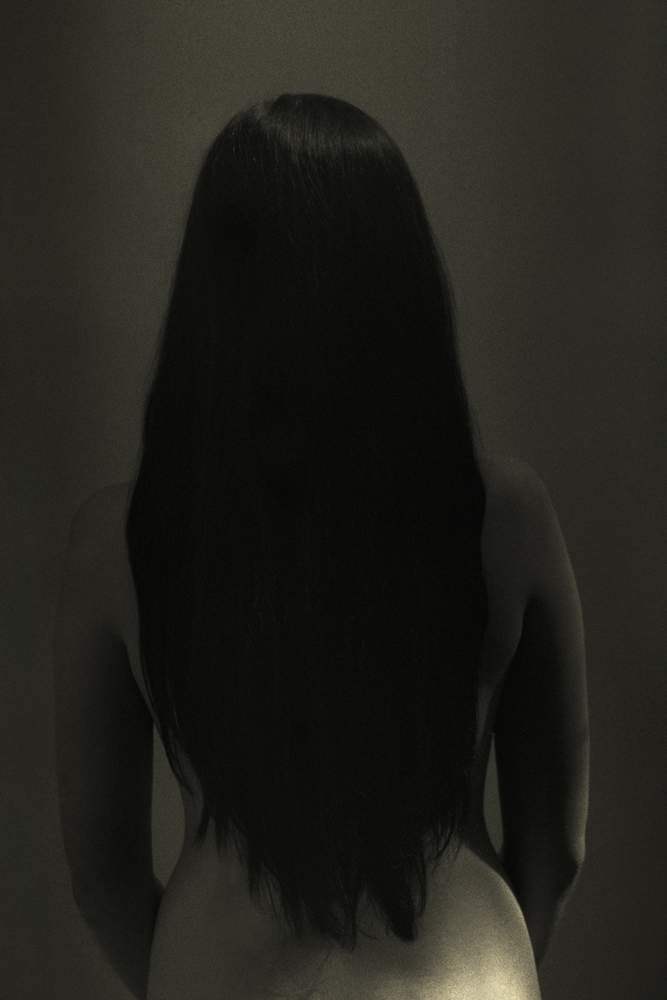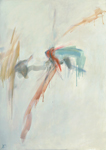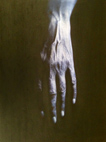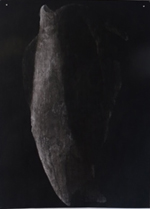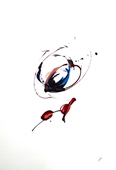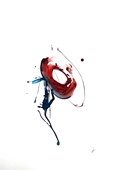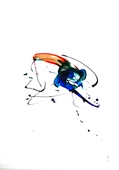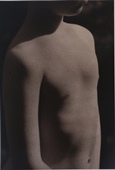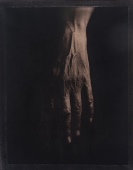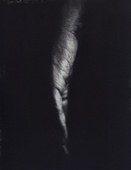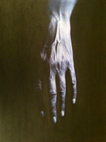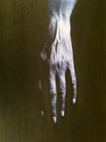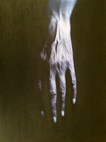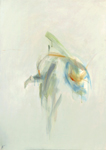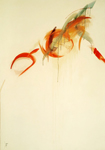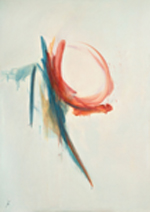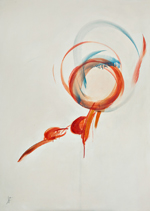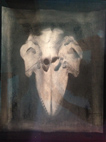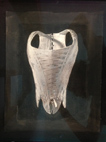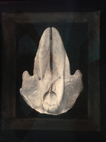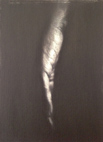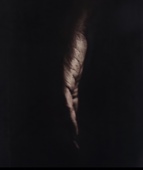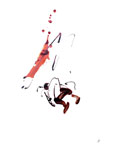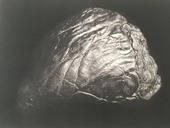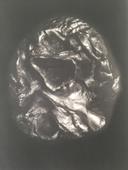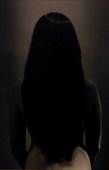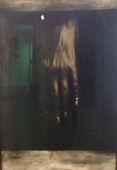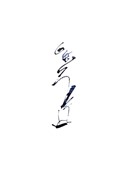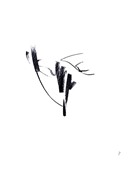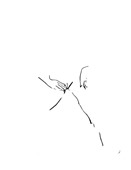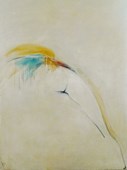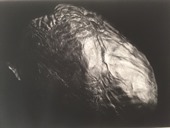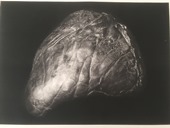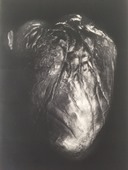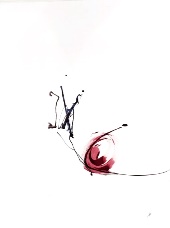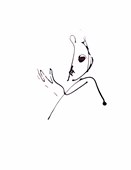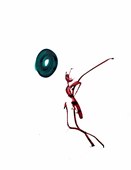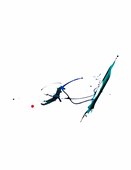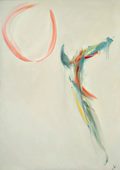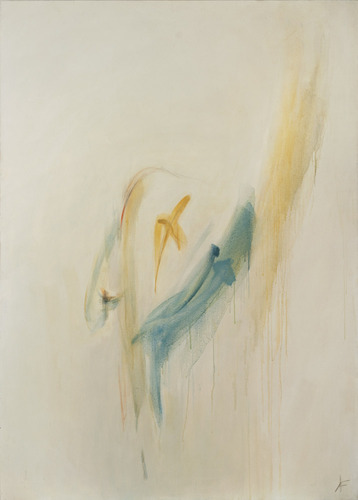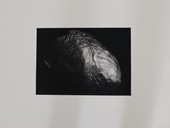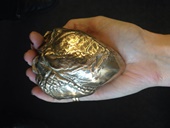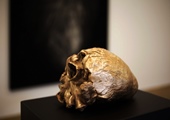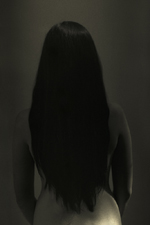For this new exhibition, baudoin lebon presents us with two artists whose works seem to have little in common, except for a single subject : the body.
If massiveness and infinitesimally small are depicted by Melissa Coote, suggestion and movement are Karen Farkas’s signature.
Both, however, seek balance between the interiority and the visible, between what is to be displayed and what is hidden. Melissa and Karen’s artworks invite both to intimacy and distance.
This tête à tête leads to a dialogue, sharing the points of view of two women, two continents, two approaches and two technics.
mélissa coote
Giantism and deepness define Melissa’s work.
Despite preconceived ideas, this commitment to a non traditional’s scale leads us to question what is displayed before our eyes : the body’s obviousness. Represented as topographic landscapes are, by highlighting each and every bump and hollow. To this facet, another one is added : the passage from interiority to the visible. The artist highlights the invisible, what we are too little acquainted with, or to which we do not pay much attention to, such as hands, hair, a torso or even a heart.
By sanctifying these forgotten body parts resembling to vanité , memento mori , Melissa Coote renews with art history and talisman’s representation in the non Western culture at once.
This meeting between art and ritual provides her artworks the power to absorb and captivate the audience.
Melissa’s work demands that our expectations rise to ordinary objects. She brings our attention to intuitive and the body’s internal story.
The organic and the vital necessity of an hand, of a heart is abandoned in favour of its aesthetic appeal.
One can find Gerhard Richter’s influence in Melissa Coote’s works, especially in her « estompage » (with sandpaper & sheep’s wool). The artist enhances what seems old-fashioned and unpleasant.
The final appearence therefore obtained, the hyperrealism of her works is to be compared to photographs, which takes a great part in her work.
Besides the resemblance between her drawings and photographs, Coote succeeds in revealing the presence of light, sometimes highlighting a detail, sometimes concealing it.
The direct reference to black and white photographs is patent.
Through Melissa Coote’s gaze, one is able to respond to an object, an idea, an artwork using it as a bridge to go beyond commonplace. How, you may ask. Surely with the help of a different state of mind.
karen farkas
After getting a degree in the Architecture School of Paris Villemin, Karen Farkas first launched into to this path. But discovering Balthus at an exhibition in Morvan in 1999 have been for her a revelation, an emancipation. Her architecture’s lessons helped her find a synthesis between a structural research, a rupture in balance and letting go. An unavoidable end establishing itself is to be found in the artist’s idea of a sketch. It is a « permanent incompletion », « the time where you should stop », as if the unconscious led the way.
The sketch is in the artist’s vision a mean to play with the border’s porosity between visible and invisible.By its essence, the sketch outlines the early shape of the future artwork, only suggesting a general idea.
The power of chance, of these unavoidable shapes reveal themselves into Karen Farkas’s work thanks to the use of runs. The unknown, unpredictable is part of the artwork. The shape or the subject thus created, rises into this balance and dizziness’s paradox, resulting of runs.
The outcome of this inner experience transcribes the colours, whites (sort of breaths) and movement. Karen Farkas summarizes it as « a narrative abstraction ». Nothing is fixed, everything is in progress.




